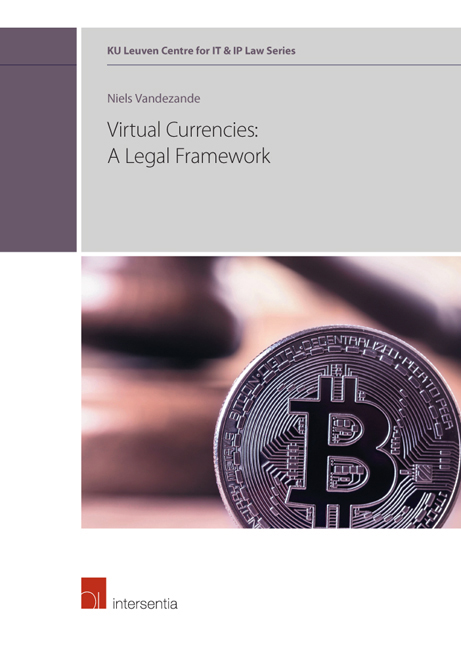Book contents
- Frontmatter
- Foreword
- Acknowledgments
- Contents
- Acronyms
- Introduction
- Part I Conceptual Analysis
- Part II Legal Analysis
- Chapter IV E-Money and Payment Services in the EU
- Chapter V Anti-Money Laundering in the EU
- Chapter VI Financial Instruments in the EU
- Chapter VII Virtual Currencies and Service Providers in the US
- Part III Conclusion
- Bibliography
- Miscellaneous Endmatter
Chapter VII - Virtual Currencies and Service Providers in the US
from Part II - Legal Analysis
Published online by Cambridge University Press: 13 October 2018
- Frontmatter
- Foreword
- Acknowledgments
- Contents
- Acronyms
- Introduction
- Part I Conceptual Analysis
- Part II Legal Analysis
- Chapter IV E-Money and Payment Services in the EU
- Chapter V Anti-Money Laundering in the EU
- Chapter VI Financial Instruments in the EU
- Chapter VII Virtual Currencies and Service Providers in the US
- Part III Conclusion
- Bibliography
- Miscellaneous Endmatter
Summary
VIRTUAL CURRENCIES AND SERVICE PROVIDERS IN THE US
INTRODUCTION
US PERSPECTIVE – In the previous chapters, some of the core EU legal frameworks in the field of financial law were analyzed in order to assess their applicability to virtual currencies and virtual currency service providers. Given that virtual currencies are a global phenomenon, inspiration regarding the regulation – or even the need for regulation – of virtual currencies can be sought in other jurisdictions. As noted in the introduction to this research, the US was selected as the main candidate for such comparative research. This is, first of all, because many developments regarding virtual currencies originated, or are still being developed, in the US market. Second, US legislators and regulators – at both federal and state levels – have already taken regulatory steps regarding virtual currencies. Such can demonstrate how virtual currencies and their services can be embedded in existing legal frameworks, or whether entirely new frameworks are needed. Last, US law provides a high practical and linguistic accessibility of its primary and secondary sources. While Japan has recently taken interesting regulatory steps as well, the linguistic barrier and the lack of trustworthy translations of the relevant primary and secondary sources would complicate a more in-depth comparison.
Goal – The goal of this chapter is to assess whether – and if so: how – the types of virtual currencies identified for the purposes of this research are regulated under US federal and state law. The focus on the treatment of particular cases – rather than on the legal frameworks governing them as a whole – will allow to draw more direct comparisons to the situation within the EU, as uncovered in the previous chapters. Following this analysis, the situation in the US can be compared to that in the EU, taking into account the normative criteria established for the purposes of this research. Such may provide inspiration for the need for regulation of virtual currencies within the EU, and – if such regulatory need is found – for what form such regulation could take.
Approach – First (section 2), this chapter will elaborate upon the methodology for such comparative research. Such will allow to clearly delineate the scope and the limitations of this comparison. Then (section 3), this chapter will analyze the application of the relevant legal frameworks under US federal and state law to virtual currencies.
- Type
- Chapter
- Information
- Virtual Currencies: A Legal Framework , pp. 341 - 412Publisher: IntersentiaPrint publication year: 2018



